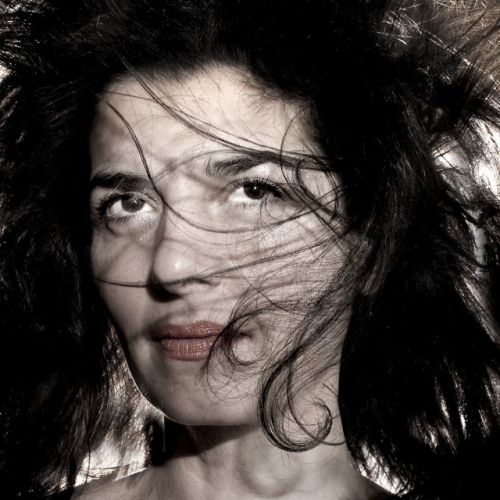De Laatkomer/The Latecomer
NNT (has been renamed to NITE)
September 2, 2014 - December 15, 2014
2 hours
Tour through The Netherlands and Belgium.
A man hates his life and pretends to have Alzheimer. The fun ends when he comes to a clinic. After a while he meets his first teenage love Rosa, in a wheelchair, with dementia. An outstanding love story, but also a very hard camera on how we deal with old people. This performance involves dance, live piano music and mime next to character acting to catch the perception of man with dementia.
‘I love this adaptation’ said the writer of this novel, Dimitri Verhulst. Newspaper ‘Trouw’ wrote ‘uitstanding staging’ for the first and respectful theatre adaptaion of this hit-book of Verhulst.
Director
Ola Mafaalani
Dramaturg and adaptation
Dirkje Houtman
Composer
Eef van Breen
Set designer
André Joosten
Light designer
Remko van Wely
Costume designer
Johanna Trudzinski
Actors
Hans Dagelet, Malou Gorter, Bram van der Heijden, Jochem Stavenuiter, Lies Pauwels, Peter Vandemeulebroecke, Nico van der Linden, Roni Haver, Stephan Schölvink, Pier Bolt
Choreographer
(in coproduction) Club Guy & Roni
Director Ola Mafaalani about The latecomer: How often do we see elderly people fall off society into loneliness. How often do we see people getting lost in their work and living their life around expectations of others. Désiré discovers the freedom of a child to fight every logic of life with intensive happiness with joy of anarchy. A skilled trick to play with life, to dare to by a-moral, to pretend demency on the nick of time to finally live. This is our great starting point for the adaptation of a fantastic novel.

Foto: Reyer Boxem
The author Dimitri Verhulst attended the première in the Stadsschouwburg Groningen and said in an interview with José Cutileiro:
It became a beautiful performance. It was touching when the book longed to touch, it hurted where it should hurt and never looses its humor. My biggest surprise was that my text stayed upright. It is literally my book. I am incredibly content. (…) Fantastic soundtrack. I adore the music of this performance.

Foto: Reyer Boxem
A tender love story of demented minds and honourable hearts, and a razor-sharp satire of the indignities of old age and the callousness of caregiving, The Latecomer excoriates our society and asks: might we all be better off forgetting?

Foto: Reyer Boxem
Désiré Cordier – mild-mannered former librarian, put-upon husband, lover of boules – is losing his mind. Or is he? Happily tucked away in the Winterlight Home for the Elderly, Désiré is looking forward to a quiet retirement with the other forgetful residents, safe in the knowledge that no one knows he’s faking his memory loss. And as if there weren’t reasons enough to opt out of the modern world, it would be worth it just to see Rosa Rozendaal again – the love of Désiré’s youth, the one who got away.
But dementia isn’t all fun and games. There’s a former war criminal hiding out in the home; once-beautiful Rosa might be too far gone to return Désiré’s ardour; and our hero soon begins to suspect he might not be the only one in Winterlight who’s acting a part…
About D. Verhulst
Verhulst comes from a broken home and spent his later childhood in a foster home. He grew up Catholic. As a writer, he made his debut in 1994 with the self-published Assevrijdag. In 1999 his first official publication appeared, a collection of stories about his youth, De kamer hiernaast, for which he was nominated for the NRC Literair Prijs. The novel Niets, niemand en redelijk stil (2000) is also about his youth, but De verveling van de keeper (2002) signals a change in form and is characterized by great social and political involvement. In 2001, Verhulst published Liefde, tenzij anders vermeld, a collection of poetry.
His breakthrough to the general public was in 2003, with Problemski Hotel (translated as Problemski Hotel), about residents of an asylum-seekers’ centre in Arendonk (Belgium). The book was translated into more than ten languages. Belgian filmmaker Manu Riche made a movie based on the book, which is to premiere in January 2016. In 2006 his novel De helaasheid der dingen (translated as The Misfortunates) was published, and also the novella Mevrouw Verona daalt de heuvel af (translated as Madame Verona Comes Down the Hill). In 2008 Godverdomse dagen op een godverdomse bol (“Goddamn days on a goddamn globe”) was published, for which Verhulst won the 2009 Libris Prize; Verhulst wrote the 2015 Boekenweekgeschenk, De zomer hou je ook niet tegen. His 2015 novel Bloedboek (“Bloodbook”), a retelling of the Pentateuch, was praised in De Morgen for its amusement value; in the Dutch daily Trouw it was called a “gruesome bible”, with the interviewer questioning Verhulst about his use of terms such as “Final solution” in retelling the first five books of the bible. Verhulst responded that he used the “worldwide language of genocide”.
Verhulst publishes on a regular basis in the literary journals Underground, Nieuw Wereldtijdschrift and De Brakke Hond. For Underground he is also an editor. He lives and works in Huccorgne.
Writing style
Verhulst’s writing style has been characterized as sarcastic but compassionate. His use of language can be explicit and hilarious. His writing is controversial, and Verhulst was twice summoned to court. Belgian writer Louis Paul Boon is a source of inspiration for Verhulst.


